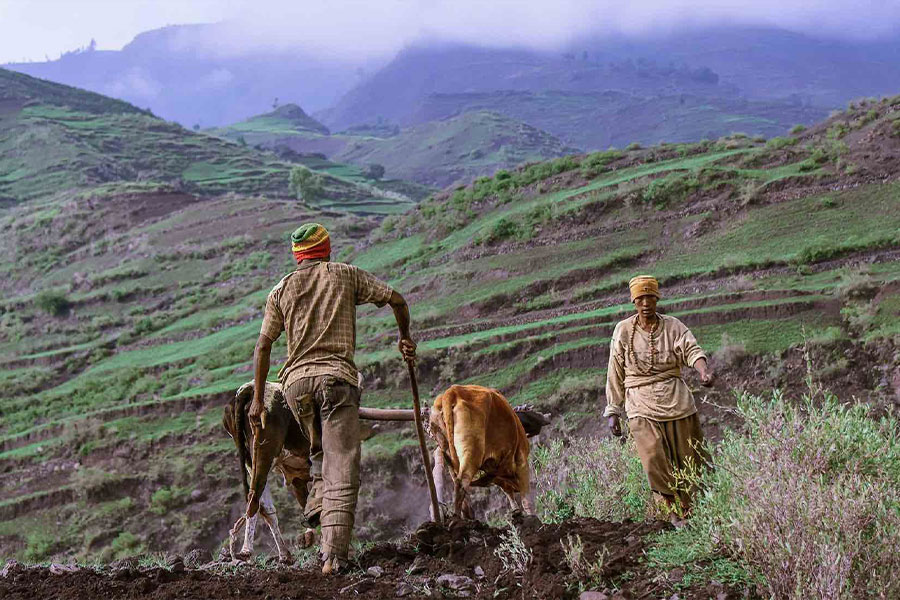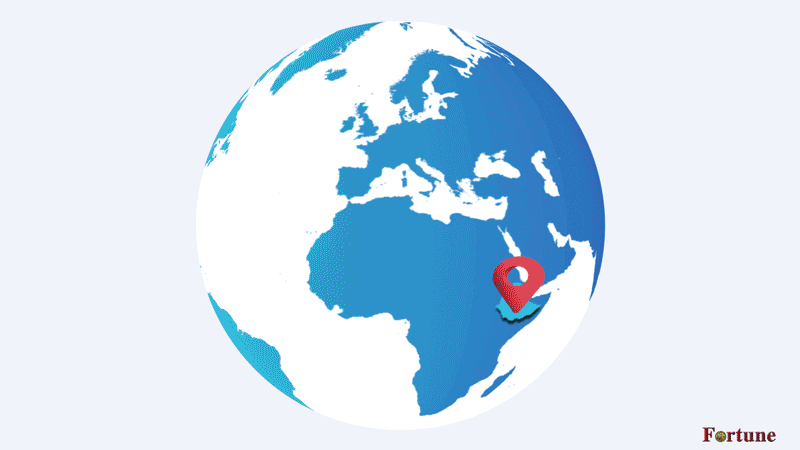
View From Arada | Sep 06,2025
Aug 10 , 2019
By Landry Signé , Ameenah Gurib- fakim
At a time when the United States, once a standard bearer of multilateralism, is embracing protectionism, Africa has taken a bold step in the opposite direction, creating the world’s largest free-trade area since the establishment of the World Trade Organization in 1995. The African Continental Free Trade Area (AfCFTA), which came into force on May 30, includes nearly every country on the continent. And it proves, yet again, that Africa is on the move.
In recent years, Africans have been working to reclaim the narrative, highlighting their countries’ remarkable progress and the continent’s vast potential in order to attract investment and deepen regional and global engagement. They have much to boast about.
In recent years, Africa’s average annual GDP growth has consistently outpaced the global average and is expected to remain at least 6pc until 2023. Six of the world’s ten fastest-growing economies are in Africa. For the period 2014-2050, PwC projects that Nigeria, South Africa and Egypt will remain in the top ten.
Africa will owe much of this growth to its large working-age population and growing consumer markets. Throughout the 21st century, Africa – the youngest region in the world – will be the source of the vast majority of global labour-force growth. This implies massive potential for increased production and savings, which could sustain an economic boom that supports rapid poverty reduction. In 2050, the richest 10pc of Africans – some 250 million people – will drive as much as a five-fold increase in demand for consumer goods and services.
Of course, such outcomes are not guaranteed. If the continent is to reap the productivity and growth benefits of its growing workforce, its governments will need to ensure that people have the right knowledge, skills and opportunities.
Fortunately, Africa’s governments are working to develop the required infrastructure and institutions. Across the continent, efforts are underway to improve education and foster a culture of innovation. Moreover, political leaders are implementing reforms aimed at improving business conditions. In the World Bank’s 2019 Doing Business Index, five of the ten most-improved countries are in Africa, and one-third of all recorded reforms occurred in Sub-Saharan Africa.
Already, returns on investment and entrepreneurship are rising fast. Over 400 African companies now boast annual revenues of one billion dollars or more, and 700 more report revenues of over 500 million dollars. An assessment of 360 companies from 32 African countries reveals an impressive average compound annual growth rate of 46pc in 2019, up from 16pc last year.
Lucrative investment opportunities are available in sectors like energy, agriculture, water and mineral processing. Agriculture (including agribusiness), projected to be a one trillion dollar industry in Sub-Saharan Africa by 2030, is attracting a growing amount of private-sector investment. Africa is also expected to receive almost 2 trillion dollars in investment in natural resources by 2036.
But Africa’s economies are not seeking to cling to past growth strategies. Instead, the growth and revenues brought by investments in resources like oil will enable them to diversify – including by developing technology-enabled non-manufacturing industries, like information and communications technology-based services – and deepen regional integration.
Such integration was advanced last November at the African Development Bank’s inaugural Africa Investment Forum, where business and government leaders closed 49 deals worth over 38 billion dollars. It has now been accelerated by the AfCFTA, which promises to deliver major gains to all countries involved.
The AfCFTA could increase the value of intra-African trade by 15-25pc by 2040 and boost economic output by 29 trillion dollars by 2050. This would enable companies to take advantage of economies of scale, while supporting the diversification of industrial sectors and driving growth in value-added manufacturing. If governments create the right conditions, this could spur job creation and lead to significant poverty reduction.
African countries’ cross-border trade and investment ties are hardly confined to the continent. Trade with the advanced economies (particularly the European Union and the US) remains high, though it is declining.
Among the emerging economies, China has been particularly proactive in deepening its links with Africa, including by investing in the continent’s industrialisation, agricultural modernisation and infrastructure. With China projected to shift 100 million labour-intensive manufacturing jobs offshore by 2030 – jobs that Africa’s large and young workforce could easily fill – this relationship could be a game changer.
Africa has also pursued partnerships with emerging economies like India, Indonesia, Russia and Turkey. This is broadly good news, though African governments must be aware of both the benefits and drawbacks of new trade deals and loan agreements with emerging economies, including China.
At the same time, policymakers must continue to foster a vibrant innovation culture, including by strengthening intellectual-property protections. Innovations in mobile finance, such as Kenya’s M-Pesa, have already improved financial inclusion on the continent. Similar innovations can help countries to expand access to quality education and develop their human capital.
Africa’s political leaders, businesses and citizens increasingly recognise that integrated economies, powered by innovative and high-growth companies and strong private investment, are the key to a prosperous future. Now, they must each do their part to drive progress on all of these fronts, including by continuing to embrace initiatives like the AfCFTA.
PUBLISHED ON
Aug 10,2019 [ VOL
20 , NO
1006]

View From Arada | Sep 06,2025

Radar | Aug 08,2020

Viewpoints | Jun 14,2025

My Opinion | Apr 13,2024

Sponsored Contents | Mar 28,2022

Fortune News | May 17,2025

Covid-19 | Apr 08,2020

Viewpoints | May 04,2025

Sunday with Eden | Dec 31,2022

Radar | Apr 19,2025

Photo Gallery | 175670 Views | May 06,2019

Photo Gallery | 165890 Views | Apr 26,2019

Photo Gallery | 156278 Views | Oct 06,2021

My Opinion | 136839 Views | Aug 14,2021

Dec 22 , 2024 . By TIZITA SHEWAFERAW
Charged with transforming colossal state-owned enterprises into modern and competitiv...

Aug 18 , 2024 . By AKSAH ITALO
Although predictable Yonas Zerihun's job in the ride-hailing service is not immune to...

Jul 28 , 2024 . By TIZITA SHEWAFERAW
Unhabitual, perhaps too many, Samuel Gebreyohannes, 38, used to occasionally enjoy a couple of beers at breakfast. However, he recently swit...

Jul 13 , 2024 . By AKSAH ITALO
Investors who rely on tractors, trucks, and field vehicles for commuting, transporting commodities, and f...

Oct 18 , 2025
The political establishment, notably the ruling party and its top brass, has become p...

Oct 11 , 2025
Ladislas Farago, a roving Associated Press (AP) correspondent, arrived in Ethiopia in...

Oct 4 , 2025
Eyob Tekalegn (PhD) had been in the Governor's chair for only weeks when, on Septembe...

Sep 27 , 2025
Four years into an experiment with “shock therapy” in education, the national moo...

Oct 18 , 2025 . By NAHOM AYELE
In a sweeping reform that upends nearly a decade of uniform health insurance contribu...

A bill that could transform the nutritional state sits in a limbo, even as the countr...

Oct 18 , 2025 . By SURAFEL MULUGETA
A long-planned directive to curb carbon emissions from fossil-fuel-powered vehicles h...

Oct 18 , 2025 . By BEZAWIT HULUAGER
Transaction advisors working with companies that hold over a quarter of a billion Bir...